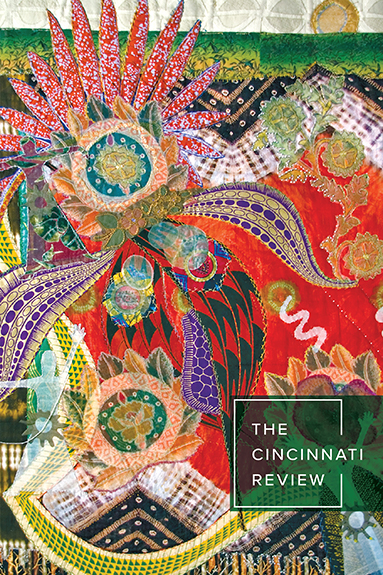Peng Soon had knocked the glass of vodka and lime out of Paul’s hand at Taboo the first time they met. He had swung out his arm to illustrate a point in the story he was telling—a recent sexual conquest on a business trip to Taipei—and his hand met Paul’s glass. Unruffled, Peng Soon ran his hand across Paul’s chest to clear away the spill, shouting a hot apology into his face. They had only met a few minutes before, briefly introduced by a mutual friend.
Later, in the toilet, Peng Soon had walked in to witness Paul splashing water on the now-sticky stains, and offered an affected, more laborious apology. He pulled a fistful of paper towels out of the dispenser, swabbing it across Paul’s damp jeans. He kept his hand on Paul’s waist, his body giving off a robust heat, a whiff of alcoholic fumes. Peng Soon was tipsy, and he stumbled as they were exiting the toilet; Paul had to hold onto his arm to steady him. “I’m okay, I’m fine,” Peng Soon said, pressing his face to Paul. Peng Soon had a strong craggy face, with rough, unrefined features and thick fleshy lips—cock-sucking lips, Paul thought. It was not an unpleasant face, coarse though it was, and Paul had liked it just enough. Enough to ignore Peng Soon’s drunken state. They left together that night, and Paul stayed over at Peng Soon’s place. By then, Peng Soon was too drunk, too far gone.
“Not even a blow job that night, can you imagine?” Paul would tell their friends after they had gotten together as a couple, part of the narrative they had made of their earliest days, along with their age gap, he being only twenty-three then and Peng Soon forty-five. Paul had the origin story down pat, hardened into facts, and while Peng Soon had his own version of it, he allowed Paul to tell his, to make it the official story, though Peng Soon was a better, more natural, storyteller.
*
The years ate them up. They had brief, intense affairs, one-night stands, a threesome in the fifth year of their relationship, which Peng Soon had initiated with a stranger they picked up at the public pool where they usually went for their weekly swim. It was an interesting enough experience for Paul, though he had not wanted to try it again. Too much risk, he said. But what risk, Peng Soon countered. There were fights and fleeting interludes when they’d lived apart—Paul had moved in with Peng Soon a year after they met—but they’d always gotten back together, after one or the other had cooled his head, had apologized. Past actions, gross mistakes were remembered, not entirely forgotten or forgiven, though their venom and lingering sting gradually faded over time, like scars forming over wounds, visible, permanent. They loved—had always loved—one another, and it was the knowledge of this that helped bind them together. That, and the long, long years they had put into the relationship to make it work. They had common goals, a mutual understanding, and a longstanding tolerance for one another.
At one point, they had even considered having a child, an adoption. Paul wanted one; he was good with children and volunteered as a play personnel with an organization that assisted families with children with cancer and childhood diseases. At first, Peng Soon was slow to take up the idea and instead proposed having a dog or a cat as a substitute, but Paul killed the suggestion immediately: “They’re not the same, totally different things.” When Peng Soon eventually came around to Paul’s wish, they signed up and attended an adoption meeting where the social worker talked about the priority of married couples over single parents—where were they in this aspect? Not recognized or even considered as potential parents. Peng Soon was indignant, furious, beyond words; he who had not wanted a child initially was confounded, pissed off, by the glaring bias of the system, its blatant unfairness. He wrote spiky emails to the respective ministries and vented his frustration openly, on online forums and to close friends. Paul, on the other hand, took it all in without a word. Yet another thing to live with, he mused, a loss of something he would never have. Well, at least, Paul comforted himself, they still had the nephews and nieces on Peng Soon’s side—his five siblings had broods of them; one even had four sons. Paul was close to a few of these kids, and he learned to make do, to content himself with being an uncle to them.
*
At first, it had been just a small part of the wall that they allowed Peng Soon’s nephews and nieces to draw on with their crayons and markers and colored pencils, when they were younger and came over to their place for dinners and gatherings. The wall was in the spare room that doubled as the study/entertainment room/storage space/temporary bedroom where one of them would sleep when they had their fights. One of the nephews, Caleb, had first drawn a dog on it with a blue pen, and they found it adorable and let the drawing stay. Then the others started to draw and doodle as well, and over time, these drawings, scribblings, and nonsense, really, began to take up the lower half of the wall. Peng Soon had to set limits after a while—no other walls in the room or the flat; other than that, they were free to “decorate” the wall any way they liked.
On some days when Paul found himself in that room, searching for a book or putting aside a box of old DVDs, he would stare at the drawings on the wall. There were all the things you would expect from a child’s hand and imagination—houses with suns and stars above them, dogs and snakes and fish, lots of hearts of every size, rainbows, balloons, cakes, princesses (princes?) with flowing hair and wands and tiaras, multiheaded monsters, spaceships. Was there a story, or stories, in all of this, he wondered? A frieze unraveling in pithy, contained vignettes? A man emerging from a house, becoming a wolf, becoming a stick figure, transforming into a car, a truck, a sea monster with flailing tentacles, metamorphosis after metamorphosis. Nothing stayed the same, transformation was everything, always constant. Some of the drawings had overlapped, the darker colors hiding and obscuring what lay beneath, and Paul found it hard to make out or distinguish any of the mashed-up sketching.
Occasionally, Paul would add on to a drawing he liked, a minor detail that would enhance the overall composition, he hoped, and not change it. Fill up the toes of a Care Bear, enlarge the blast coming out of Iron Man’s hand, sharpen the horns of a triceratops. He doubted anyone would notice the changes, these touch-ups, and he was pleased with his efforts. He set aside a few stationery containers of pencils and markers for Peng Soon’s nephews and nieces to use, and restocked them when they ran low.
“Maybe let’s give it a new coat of paint, to start all over again,” Peng Soon said when they were cleaning out the spare room one afternoon.
“Let it stay, it doesn’t look that bad,” Paul said. The drawings had only reached shoulder height so far, and one-third of the wall remained empty. The kids could still work on the empty space later on. “Gives the room character, don’t you think?”
“They are just rubbish drawings lah.”
“To you. But they look fine to me,” Paul said, and he meant it.
*
Paul taught history at a secondary school for twelve years before he quit and became a private tutor, teaching English and math to lower-primary schoolchildren. His credentials as a former teacher granted him a steady flow of students entirely from word-of-mouth recommendations. He worked fewer hours compared to his last job, and the pay as a tutor was good, even better on certain months when the exams period drew near.
“Go, do something you like while you’re still young,” Peng Soon had said when Paul expressed the desire to quit full-time teaching. He wasn’t young then, already thirty-seven, and he wasn’t sure what he would like to do after that. He had taken up private tutoring only after he got bored during a three-month break, aimlessly haunting the flat with nothing better to do. It had felt so much like his old job at first—doing up a lesson plan, keeping his students in check, marking—but the hours were his to manage and control, and after five years, he had gotten used to it.
For most of the days, including Saturdays, Paul would set up a folding table in the living room of the flat and preside over his students, two or three at any one time, supervising their work. Two hours for each session, though he often went beyond this, and usually in the afternoons, when schools ended and the kids came over, still in their uniforms. He would regularly cook a larger-than-normal lunch, sweet-potato-and-minced-meat porridge or fried rice with char siew and egg, and offer it to his students. When one started to doze off after a meal, Paul would turn a blind eye, and only when this began to affect the other students would he rouse them and send them to the bathroom to wash their faces.
At the start, Paul had made sure to check the flat thoroughly to ensure that it was proper to host the students. No photos of him and Peng Soon were on the wall or displayed anywhere, the door to the bedroom was locked, and any piece of laundry, especially underwear, hanging on the poles in the kitchen was cleared and put out of sight. Nothing incriminating or revealing that would lead to unwanted speculation or questions. He would remove Peng Soon’s slippers from the mat outside the flat every time and double-check the bathroom beside the kitchen for Peng Soon’s electric shaver or toothbrush. The trash bins were, of course, emptied out and sheathed with new liners. Peng Soon found all this rather amusing and sometimes annoying, when he had to take his slippers out from the shoe cupboard.
“So ashamed of me, is it?” Peng Soon often said. “Can’t let people know I exist ah?”
“No lah, it’s just to be on the safe side, the kids don’t need to know or ask too much.”
On Saturdays that he had to give tuition, Paul would forbid Peng Soon from staying at home, chasing him out of the flat after lunch. “You can find something to do for two, three hours, some errands you can run lah,” he told him. On days he begged to stay at home, Paul confined him to the bedroom and told him not to step out no matter what. He was mostly quiet, though on a few occasions Paul could swear he heard small sounds seeping out of the bedroom, a tinny buzz of TV noise or a rattle of snores. When this happened, Paul would start to talk louder than usual, picking faults in his students’ assignments, admonishing them.
Then one afternoon, he entered the bedroom and found Peng Soon staring at the ceiling with a strange, bewildered expression on his rigid face. He was lying on the bed, motionless, the left side of his face slackened. Paul called out his name several times, but Peng Soon didn’t respond or move. A stroke, the doctor said, and at the back of Paul’s mind, nagging, persistent thoughts gathered: But he’s only sixty-three. He ran, he swam, he ate healthy meals—weren’t these things enough to stave off a stroke? How could this possibly happen to someone like Peng Soon, or to him, really? In the end, Paul had to learn how to live with Peng Soon all over again.
. . .











